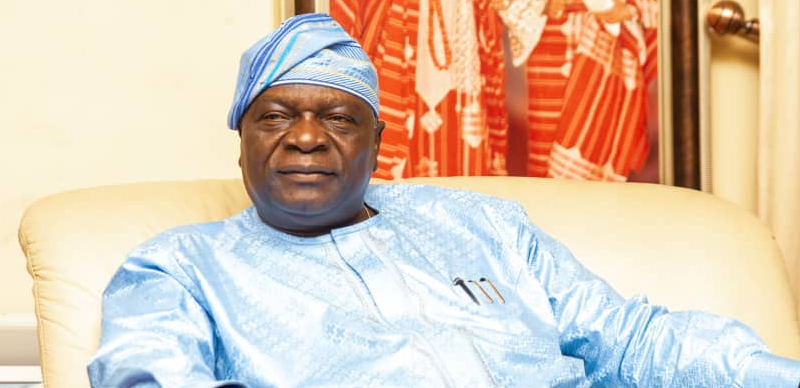The National Reconciliation Committee of the Peoples Democratic Party (PDP), led by former Governor of Osun State, Olagunsoye Oyinlola, recently engaged with Oyo State Governor Seyi Makinde to tackle the internal disputes affecting the party’s cohesion. During their meeting at the Oyo State PDP secretariat in Agodi, Ibadan, the committee formally outlined its objectives focused on mending the fractures that threaten the party’s overall unity. There, Deputy Governor Bayo Lawal stood in for Governor Makinde and highlighted the critical nature of this endeavor, indicating that the outcome of the committee’s work would significantly influence the PDP’s future trajectory in the political landscape of Nigeria.
Lawal urged all party stakeholders to actively assist the committee, underscoring that collaboration was essential for consolidating the party’s national strength. Reflecting on the evolution of the PDP, he lamented the significant decline from its former dominance, where it controlled 28 states from 1998 to 2015, to its current standing with just 12 states. He stressed that genuine unity, transcending tribal and religious divisions, is paramount if the PDP aims to remain competitive in upcoming elections. Lawal also pointed to recent electoral defeats, such as in Edo State, expressing concern about the looming challenge in Ondo State. He warned that without a unified front, reclaiming electoral power would be an arduous task, yet he remained hopeful that efforts from the reconciliation committee could restore PDP’s influence in Ondo.
Oyinlola pinpointed several reasons for the internal discord within the PDP, ranging from divergent personal ambitions to challenges over party leadership. His committee’s mission is to derive sustainable solutions to these internal conflicts through constructive dialogue and to foster an inclusive atmosphere for all party members. Recollecting the PDP’s historically robust position at the beginning of the democratic era in 1998-1999, Oyinlola expressed his disappointment over the party’s regression in the political sphere. He emphasized that the committee was formed to meticulously analyze the causes of this decline and to drive a revival.
In a bid to encourage unity, Oyinlola passionately appealed to aggrieved members of the party to put aside their grievances and actively engage in genuine reconciliation efforts. He called for the need to prioritize the future of the PDP over personal differences, advocating for an environment where all stakeholders felt valued and included. His vision for the party is clear: a collective commitment to rebuild and fortify the PDP, ensuring its vitality and relevance in Nigeria’s political tapestry.
The meeting was marked by the presence of several prominent members of the PDP, highlighting the party’s investment in the reconciliation process. Noteworthy attendees included former Gombe State Governor Ibrahim Dankwambo, who serves as the National Secretary of the committee, along with pivotal figures such as Mutiat Ladoja, a member of the PDP’s Board of Trustees, former Minister Jumoke Akinjide, Segun Sowumi, and Eddy Olafeso. Their involvement underscores the collective responsibility felt within the party to address and remedy the internal schisms that have arisen over time.
In conclusion, the ongoing efforts by the National Reconciliation Committee signify a critical phase for the PDP as it seeks to regain its footing and overcome the challenges of internal disunity. With past glories to reflect upon and pressing elections on the horizon, this initiative aims to initiate a transformative journey towards revitalizing the party’s image and electoral prospects. The focus now rests on fostering unity among its members and building an inclusive platform that could ultimately pave the way for a more robust and competitive PDP in the future.














